My Parents Fled Gaza. I’m Still Here. We May Never See Each Other Again.
“I don’t want to leave you behind, but we can’t see any other way, Noor,” Mama said. “We are so tired. We cannot bear it anymore.”
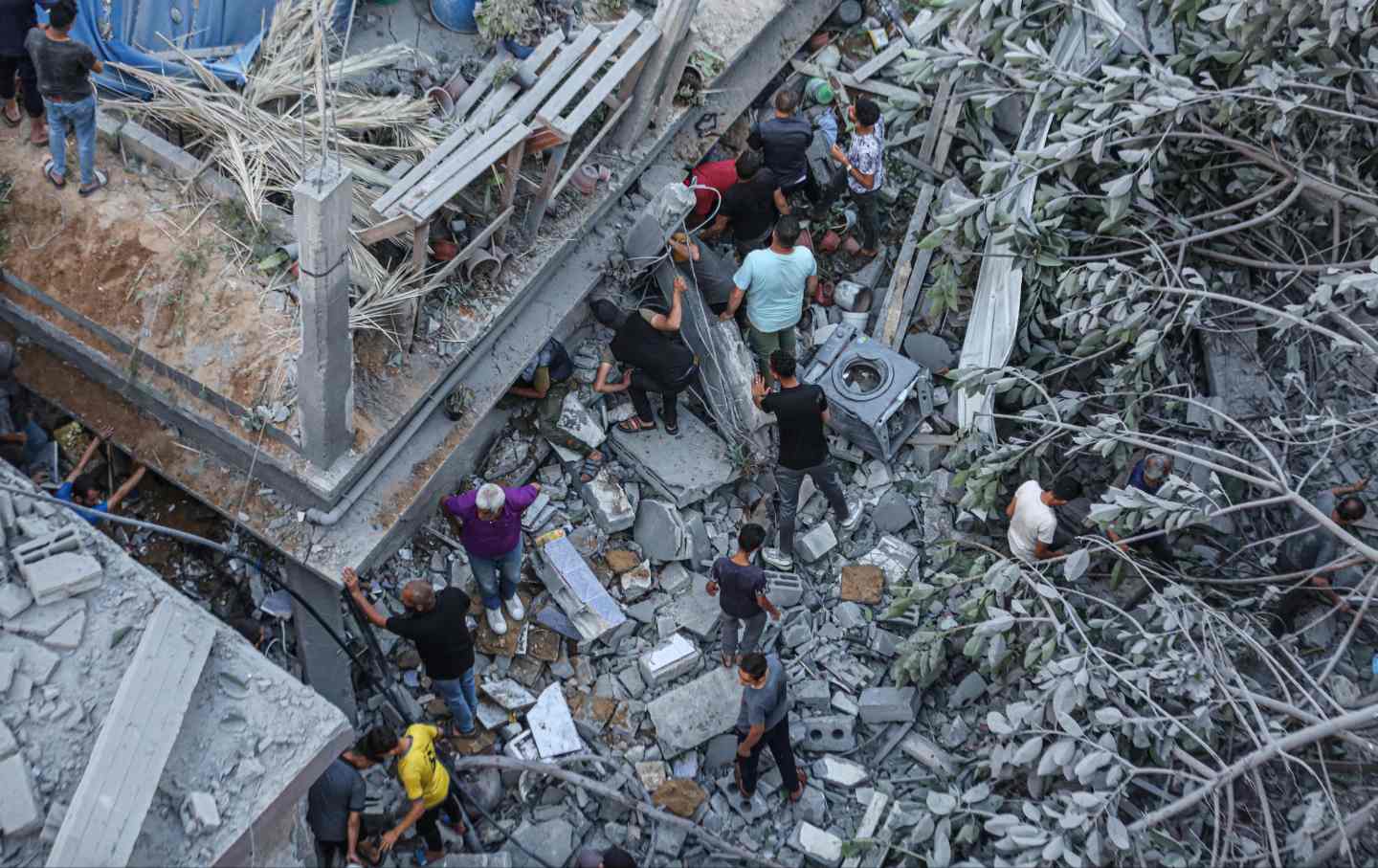
Civil defense teams and residents carry out search and rescue efforts after an Israeli attack hits the house belonging to the Al Nadi Family at the al-Daraj neighborhood in Gaza City, Gaza, on May 24, 2024.
(Dawoud Abo Alkas / Anadolu via Getty Images)Early in October, during the onset of the war, I found myself grappling with an impossible question: whether to try to flee my humble home in central Gaza with my husband, Mohammad, and our precious daughter, Lya, or to stay and face the storm together with all of my loved ones. Leaving might mean safeguarding the family I was building at the expense of the one I already had; staying might mean the opposite.
In the first days of the war, the question seemed more theoretical. Maybe I would never have to decide, I thought. Things might calm down in a few days. But as the endless bombings continued, the question started to overwhelm my mind.
Then came October 13, a day that will always be etched in my heart. That day, the Israeli army dropped brochures from the sky, supposedly warning us to flee from danger (even though nowhere in Gaza was safe). We knew what that meant: The bombs would be coming even more directly our way, and it was time to choose whether to stay or go.
I still remember my father and brother standing before my doorstep, their faces burdened with fear and urgency. “Get your bags and let’s go, Noor,” my father said. I wasn’t sure. Why was Israel pushing us to flee? Would the south really be any safer?
I asked that we wait. “It’s too early, Baba. Let’s see what’s going to happen.” Still, I was also scared for all of us. “Are you going to leave?” I asked. My father’s kind voice ruptured the sound of violence raging around us, “I won’t go without you, Noor,” he affirmed.
At that moment, amid the exodus of countless others heading southward in search of refuge, and overcome with uncertainty, we decided to remain in our homes. In the end, it came down to this: My husband and I had a primal belief that it was better to die in our home than somewhere else in Gaza.
My family house, which is about three kilometers from mine, is located just a few meters away from Al-Shifa Hospital, a primary target for the Israeli army from the start of the onslaught. I knew what kind of risk the rest of my family was taking on by staying there. But even as the bombing intensified and more of our neighbors fled south with every passing day, my father refused to abandon the home he built as a home for me and my siblings.
The days folded into the nights; sleep became a luxury, and worry over my family’s safety overcame me. Even though we were less than two miles apart, it was too dangerous to reach them on foot. And Israel’s targeting of telecommunications forced us into a virtual blackout, not only unable to reach the outside world but unable to call ambulances and our families from our homes. Mohammed had to undertake perilous journeys outside just to connect to the Internet.
The last time I saw my father was at the end of October, when he unexpectedly showed up at my front door. He had risked his life, walking on foot while the bombs kept falling, in order to reach my house to make sure I was OK.
I remember my husband’s face as he asked, “How did you come here, uncle? It is too dangerous and the distance is too far.” My father responded, “It is Noor. I will come to her no matter the distance,” I still remember the tears that filled my eyes.
I held my father tightly, kissing his hands as though I knew I might never see him again. He had brought me a bag of chocolates and biscuits, a small gesture of his affection and devotion amidst the turmoil. Months later, I still cannot eat the last piece of chocolate.
A few days later, on November 2, I received a message from my brother, informing me that he, my father, my mother, our other brother, and his family had fled south. They had decided that, due to Israel’s determination to destroy Al-Shifa, the area around the hospital had simply become too dangerous for anyone to survive. They had been intending to go to my house, but at the last minute, the chaos of the situation made them change their plans. It had also been too risky for them to come and say goodbye to us in person.
I cried so hard. Though I wished for their safety, the pain of bidding them farewell without the chance to embrace them one last time was unbearable.
My brother had told me that he hoped that Mohammed, Lya, and I would eventually follow the rest of my family south. I yearned to go, but Mohammed was equally adamant that we stay. His insistence stemmed from the resilience of our neighbors, who refused to leave as well. “We either remain together or leave together,” they said.
“I am not going to force you to stay with me. You can follow your parents and survive,” Mohammed always told me. However, I was too vulnerable to make such a decision. I knew that there was no way back. And I knew I was not strong enough to bear the responsibility of caring for Lya without my husband.
In the end, fate dictated that we remain in the north of Gaza while my family ventured south. The distance between us felt insurmountable, overshadowed only by the looming presence of the Israeli army. Although I myself decided to hold on to Mohammed and Lya, I could not help but harbor resentment toward him for the separation from my family. Really, though, I knew he wasn’t to blame. The war was. Every family in Gaza was facing these kinds of brutal decisions.
As the war raged on, the Israeli army’s push to evacuate the west of Gaza City caused around 60 of our relatives who were living in that area to flee. They made their way to us, leaving us with the intimidating task of trying to find refuge for them. With determination in our hearts, we refused to abandon those who had sought sanctuary with us. Our only option was my family house, which has four apartments. It would still not be enough space for everyone, but it was better than nothing.
By this point, the Israeli military had temporarily moved on from the area surrounding the house, so it was safer to travel there. Yet, as we stepped through its familiar threshold, hope quickly gave way to despair.
Popular
“swipe left below to view more authors”Swipe →The once vibrant home was now a shadow of its former self—dark, dusty, and partially damaged. Fractured doors, shattered windows, and sandy corners greeted us at every turn. Despite the grim reality before us, there was no time to dwell on the devastation.
Assuming the responsibility as the house’s caretaker in my father’s absence, I set my bags down and sprang into action, rallying others to help clean and organize amid encroaching darkness. With each passing moment, the weight of our situation pressed heavily upon us, leaving little time to plan for the night ahead.
As dawn broke, the reality of our circumstances hit me like a wave. While grateful for the refuge our home provided, the absence of my parents and siblings loomed large. Memories of happier times flooded my mind—my mother’s warm smile in the kitchen, my father’s comforting chats in the living room. Their absence left an ache in my heart that no one could alleviate.
By February, the Israeli army had withdrawn from much of the west, and our relatives began moving back to what was left of their homes. I left my family house with the hope of one day coming back when my family would be there, in joy and happiness, and returned to my own house with Mohammed and Lya. It had been greatly damaged as a result of the Israeli invasion. Yet we tried to close windows with ripped curtains and tried to clean the house and we chose one good room to settle in, just as so many other Gazans were doing.
For six unbearable months, my family persisted in the south of Gaza, enduring displacement and torture. Despite their efforts to remain strong, illness began to take its toll. My mother’s blood pressure soared, while my father battled diabetes and a herniated disk. Faced with mounting health challenges and the relentless strain of their circumstances, they made the agonizing decision to flee to Egypt.
With tears and broken hearts, we bid farewell to each other over the phone.
“Don’t cry, Noor,” Baba said. “Be strong, as you’ve always been.”
“I don’t want to leave you behind, but we can’t see any other way, Noor,” Mama said, her voice trembling with exhaustion. “We are so tired. We cannot bear it anymore.”
One more time, we couldn’t embrace each other before parting.
Will they come back to Gaza ever again? Will I feel the warmth of my parents’ embrace again?
I doubt it.
Disobey authoritarians, support The Nation
Over the past year you’ve read Nation writers like Elie Mystal, Kaveh Akbar, John Nichols, Joan Walsh, Bryce Covert, Dave Zirin, Jeet Heer, Michael T. Klare, Katha Pollitt, Amy Littlefield, Gregg Gonsalves, and Sasha Abramsky take on the Trump family’s corruption, set the record straight about Robert F. Kennedy Jr.’s catastrophic Make America Healthy Again movement, survey the fallout and human cost of the DOGE wrecking ball, anticipate the Supreme Court’s dangerous antidemocratic rulings, and amplify successful tactics of resistance on the streets and in Congress.
We publish these stories because when members of our communities are being abducted, household debt is climbing, and AI data centers are causing water and electricity shortages, we have a duty as journalists to do all we can to inform the public.
In 2026, our aim is to do more than ever before—but we need your support to make that happen.
Through December 31, a generous donor will match all donations up to $75,000. That means that your contribution will be doubled, dollar for dollar. If we hit the full match, we’ll be starting 2026 with $150,000 to invest in the stories that impact real people’s lives—the kinds of stories that billionaire-owned, corporate-backed outlets aren’t covering.
With your support, our team will publish major stories that the president and his allies won’t want you to read. We’ll cover the emerging military-tech industrial complex and matters of war, peace, and surveillance, as well as the affordability crisis, hunger, housing, healthcare, the environment, attacks on reproductive rights, and much more. At the same time, we’ll imagine alternatives to Trumpian rule and uplift efforts to create a better world, here and now.
While your gift has twice the impact, I’m asking you to support The Nation with a donation today. You’ll empower the journalists, editors, and fact-checkers best equipped to hold this authoritarian administration to account.
I hope you won’t miss this moment—donate to The Nation today.
Onward,
Katrina vanden Heuvel
Editor and publisher, The Nation
More from The Nation
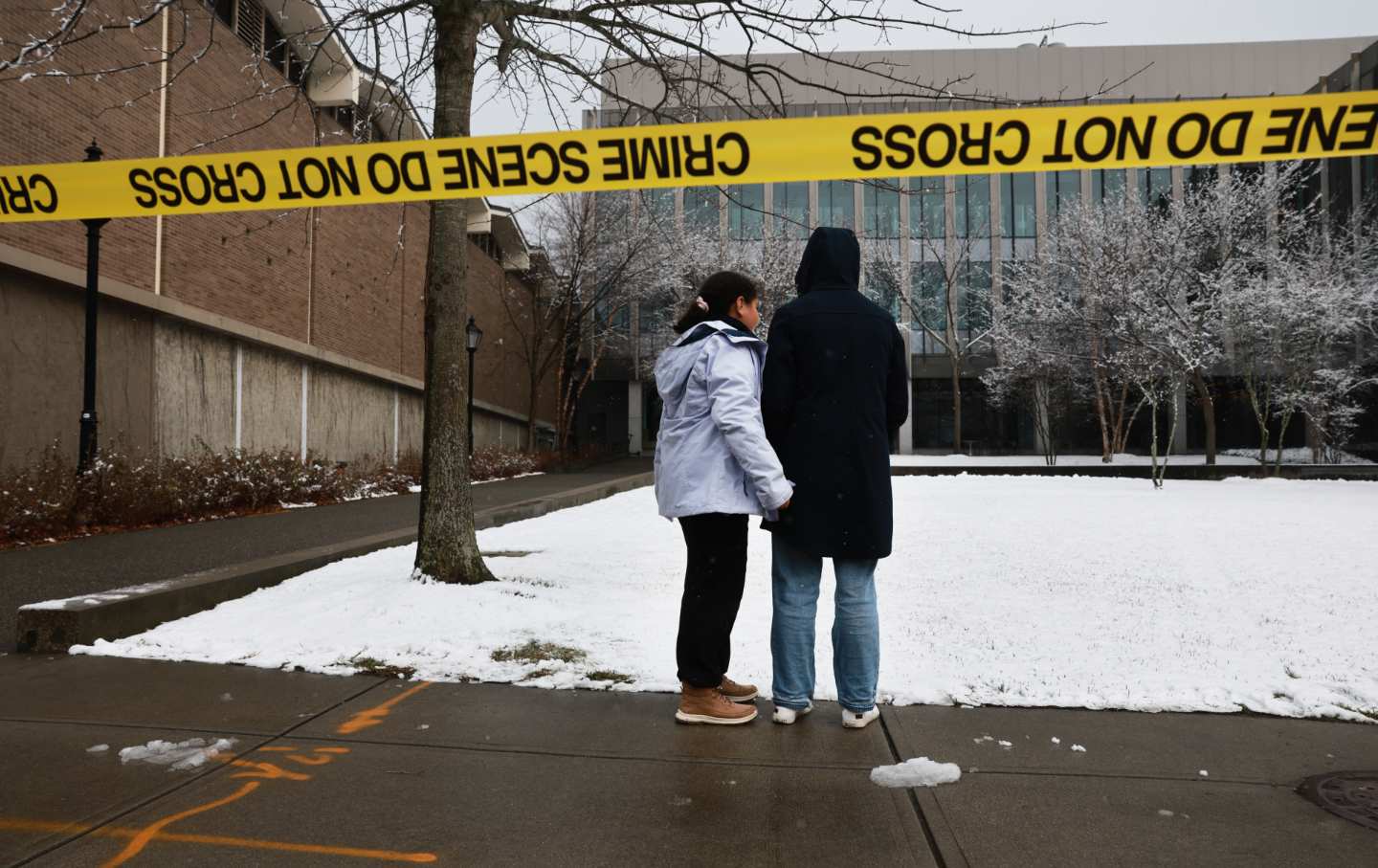
In America, Mass Shooting Survivors Can Never Know Peace In America, Mass Shooting Survivors Can Never Know Peace
A growing number of US residents have lived through more than one massacre.
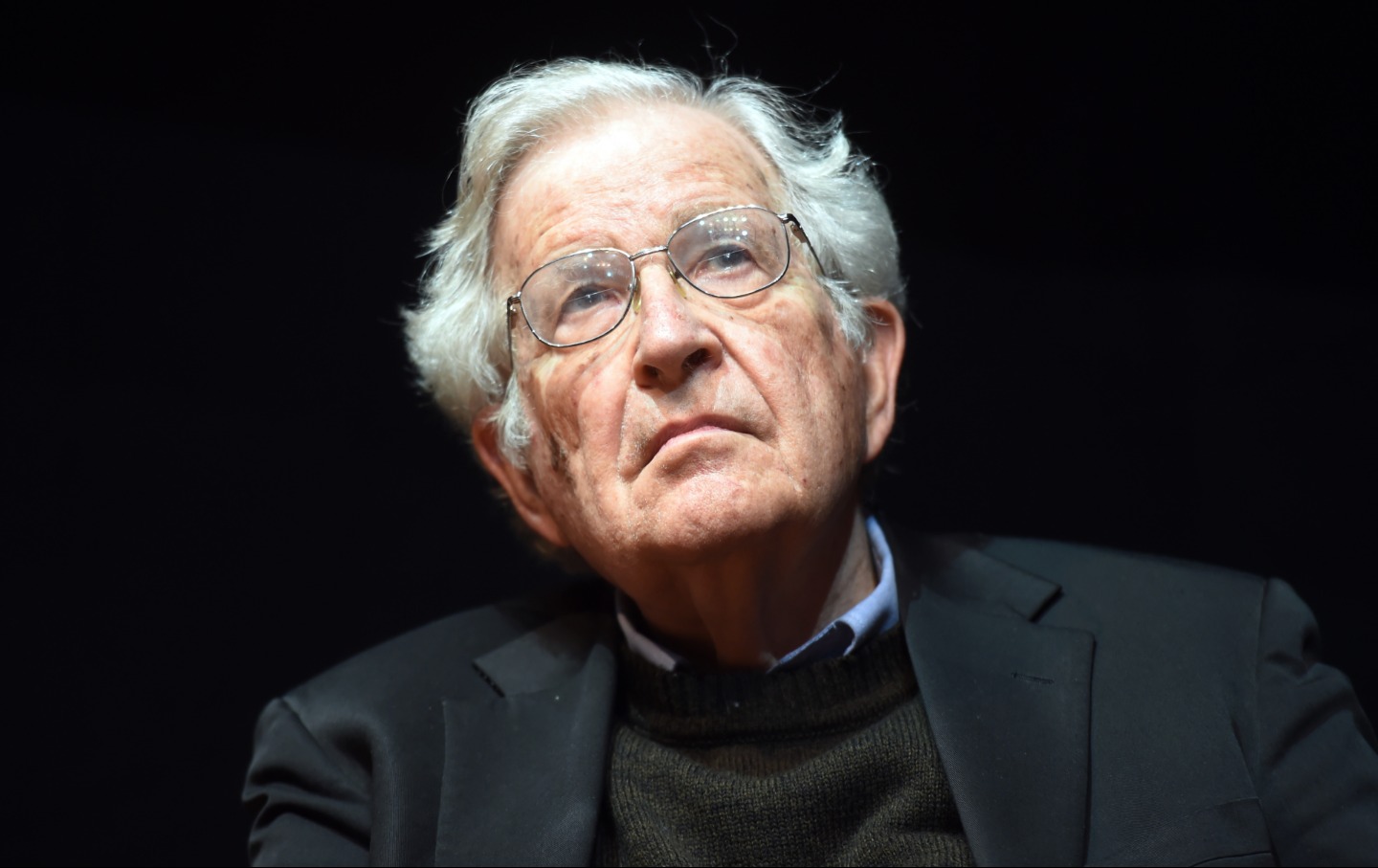
What the Noam Chomsky–Jeffrey Epstein E-mails Tell Us What the Noam Chomsky–Jeffrey Epstein E-mails Tell Us
Chomsky has often suffered fools, knaves, and criminals too lightly. Epstein was one of them. But that doesn’t mean Chomsky was part of the “Epstein class.”
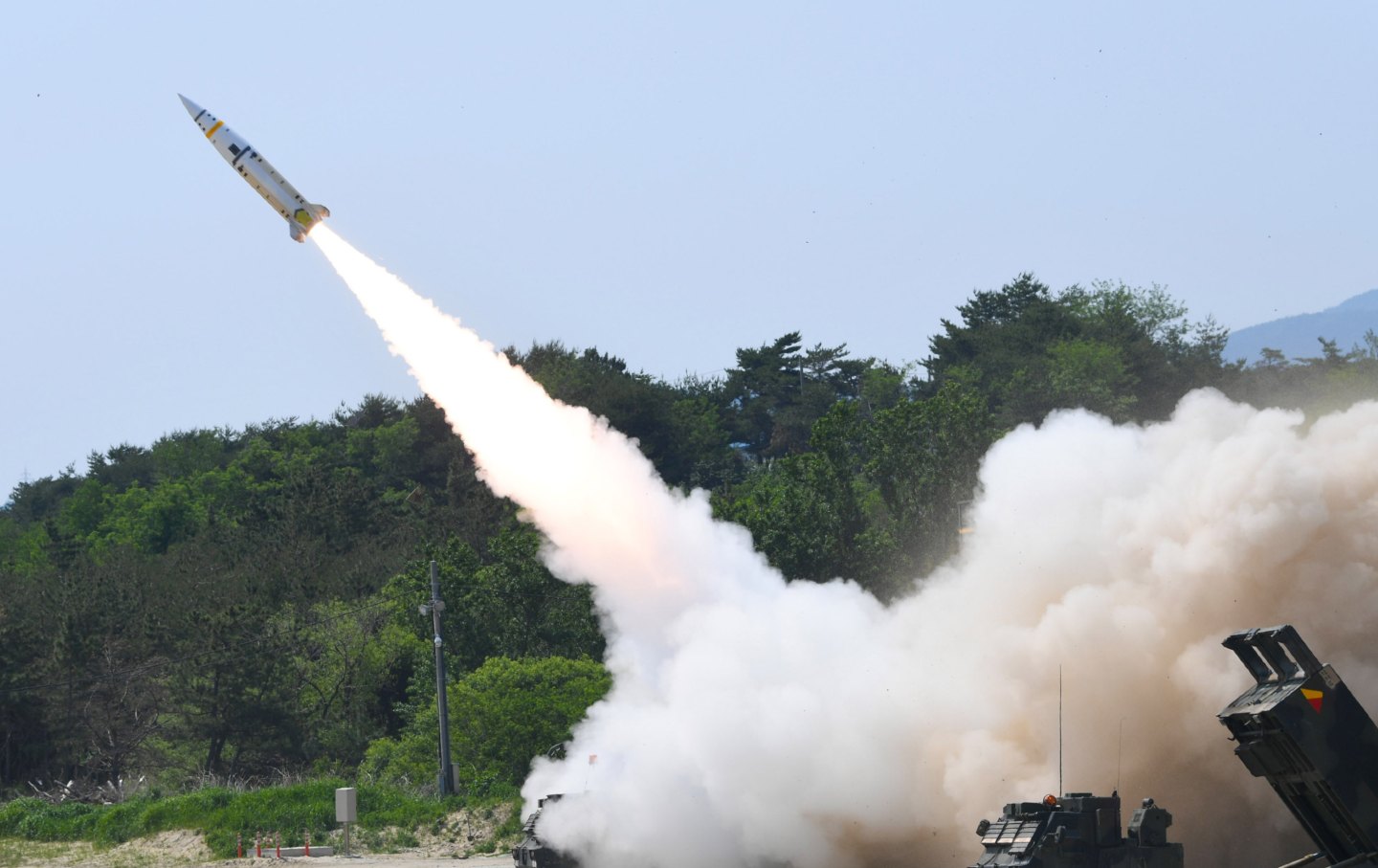
Have We Normalized Nuclear War? Have We Normalized Nuclear War?
If anything, the widespread lack of comprehension (and so protest) is one big reason why nuclear war remains so chillingly possible.
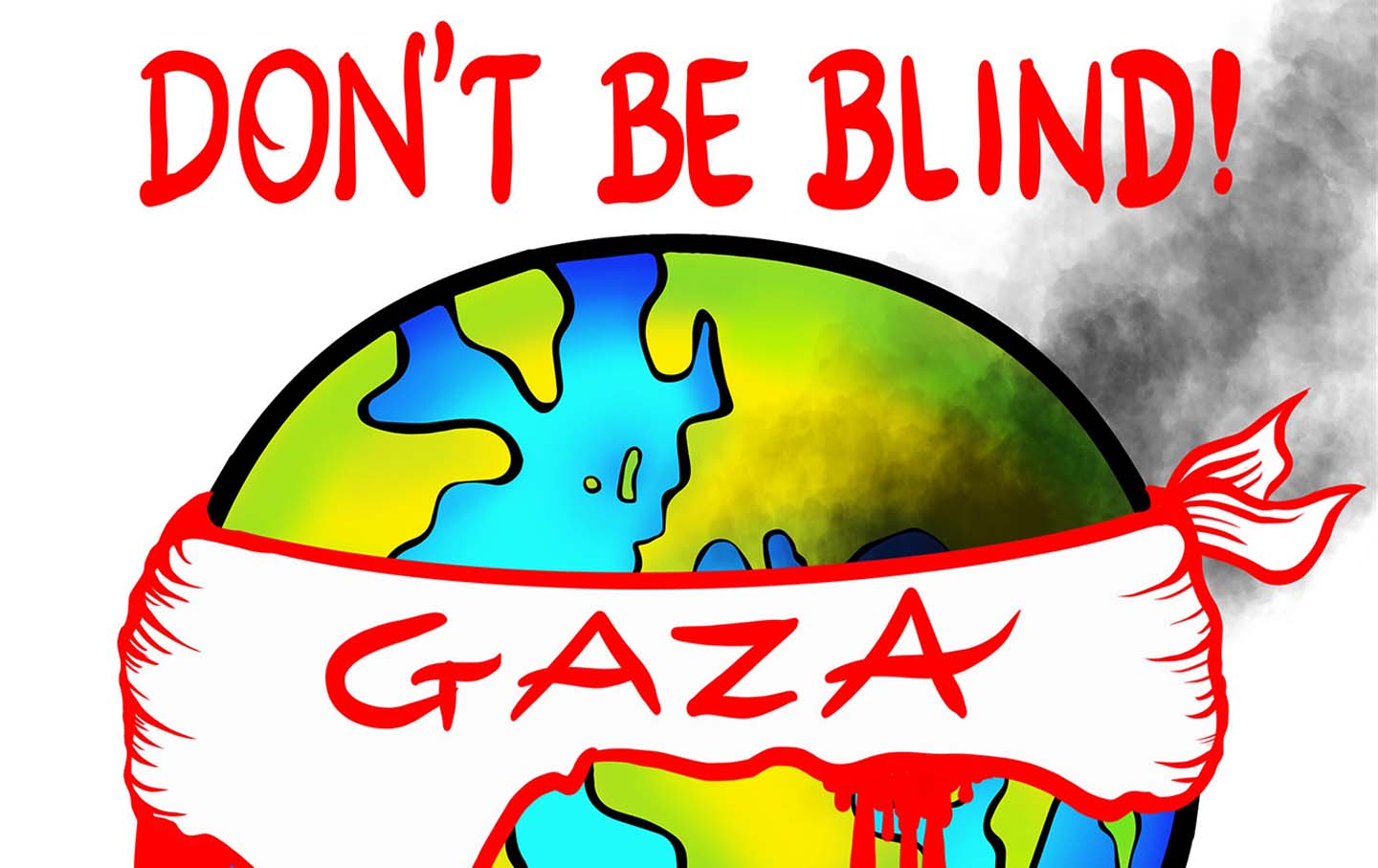
Blind to Brutality: The Palestinian Death Toll Surpasses 70,000 Blind to Brutality: The Palestinian Death Toll Surpasses 70,000
Over 70,525 Palestinians have been killed in Gaza; scholars estimate that 80 percent were civilians, largely women and children.

What Your Cheap Clothes Cost the Planet What Your Cheap Clothes Cost the Planet
A global supply chain built for speed is leaving behind waste, toxins, and a trail of environmental wreckage.
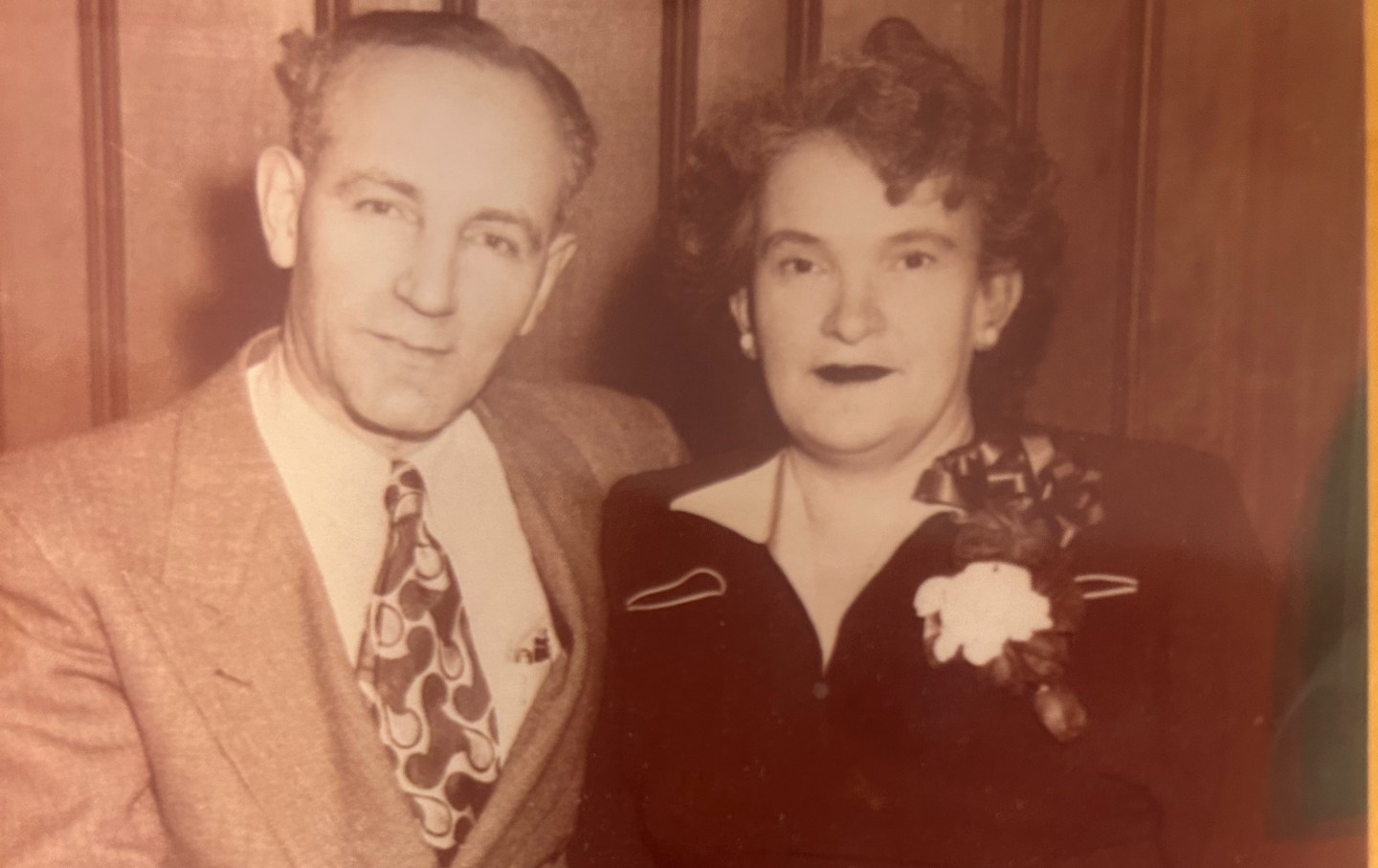
The Supreme Court v. My Mother The Supreme Court v. My Mother
After my mother escaped the Holocaust, she broke the law to save her family. Her immigration story is more pertinent today than ever before.


